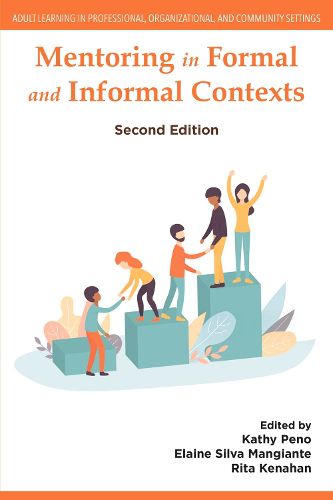Readings Newsletter
Become a Readings Member to make your shopping experience even easier.
Sign in or sign up for free!
You’re not far away from qualifying for FREE standard shipping within Australia
You’ve qualified for FREE standard shipping within Australia
The cart is loading…






Mentoring in Formal and Informal Contexts was intended to meet a gap in the academic literature that addressed mentoring practice in different contexts. The book highlights practice and research in higher education of both faculty and students, K-12 teacher education (both general and special education), healthcare education and practice, and business.
This new edition provides potential readers with four new chapters that enhance the book by providing research and practice on mentoring: junior tenure track university faculty, a collaborative community of learners, k-12 educators engaged in new methods of science teaching, and pharmacy education faculty charged with utilizing new assessment methods for their students. These chapters provide a fresh, updated look at how mentoring can be applied in both formal and informal settings in new and different ways. New models have emerged from the mentoring research and are applied in contexts new to the book. Additionally, a new Introduction is provided to update readers as to the book's changes.
$9.00 standard shipping within Australia
FREE standard shipping within Australia for orders over $100.00
Express & International shipping calculated at checkout
Mentoring in Formal and Informal Contexts was intended to meet a gap in the academic literature that addressed mentoring practice in different contexts. The book highlights practice and research in higher education of both faculty and students, K-12 teacher education (both general and special education), healthcare education and practice, and business.
This new edition provides potential readers with four new chapters that enhance the book by providing research and practice on mentoring: junior tenure track university faculty, a collaborative community of learners, k-12 educators engaged in new methods of science teaching, and pharmacy education faculty charged with utilizing new assessment methods for their students. These chapters provide a fresh, updated look at how mentoring can be applied in both formal and informal settings in new and different ways. New models have emerged from the mentoring research and are applied in contexts new to the book. Additionally, a new Introduction is provided to update readers as to the book's changes.